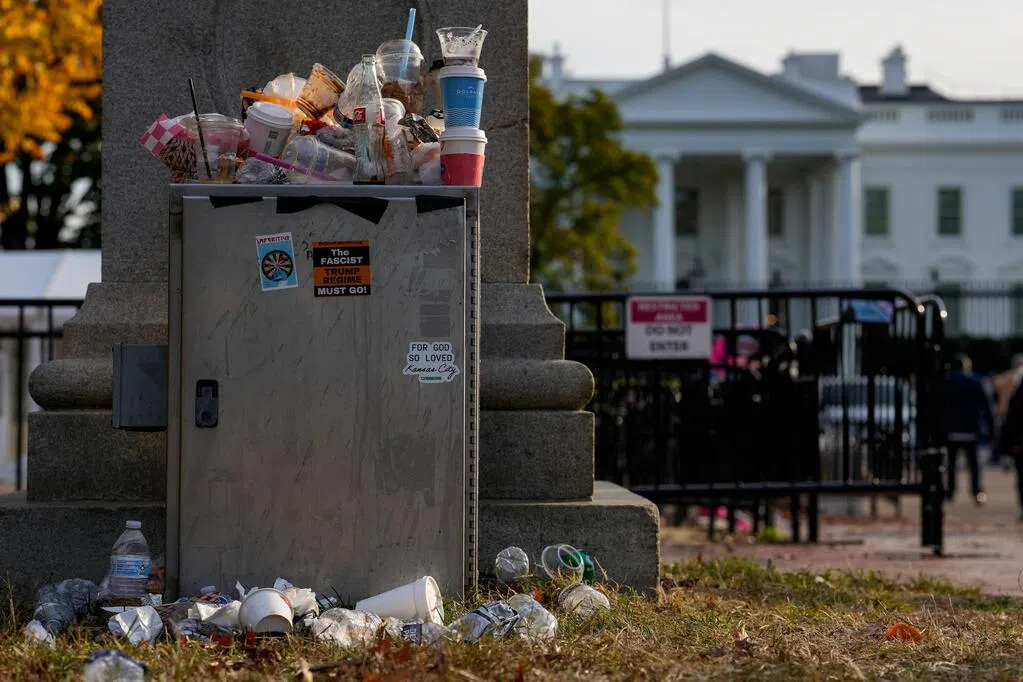(Washington, D.C.) The Democratic Party's resounding victory in the three elections on November 4th has made President Trump wary of how to retain his ground in next year's midterm elections and avoid being sidelined in the second half of his term. Trump is well aware that if the Republican Party loses control of Congress, the consequences will be dire, but securing control in the midterm elections will not be easy.
A Bloomberg analysis points out that the November 4th election results highlight a significant shift in the American political and economic landscape, from Trump's easy victory a year ago and his unimpeded transformation of Washington. Now, 2026 will gradually become a referendum on Trump's political credibility. Poll data and the Republican Party's electoral losses indicate that voters are increasingly losing confidence in the president's aggressive political style and increasingly poor economic management.
White House sources say that Trump's current strategy includes the unprecedented promise to hold a Republican National Convention before the midterm elections to encourage his core supporters to vote, and an increased domestic campaigning trip next year. A White House aide said the president will also focus more on livelihood issues, as these were the main reasons for the shift in public sentiment towards the Republican Party in last week's elections in New York City, Virginia, and New Jersey.
The overwhelming success of Democratic candidates from different factions in these three elections, all campaigning on the single theme of "affordability," demonstrates the profound impact of rising living costs on ordinary people's lives. Exit polls showed that voters' concerns about prices and household finances ranked first, far exceeding their focus on issues such as crime, immigration, and abortion.
Trump supporters may not vote in the midterm elections.
If the Republicans lose their majority in Congress in the midterm elections, a surging Democratic Party will likely limit Trump's policies on trade, taxes, and immigration. They will also use subpoenas to investigate various aspects of Trump's behavior, potentially revealing embarrassing or politically detrimental secrets.
Further Reading


Such an outcome could also damage Trump's image as a powerful figure with firm control over the party and a strong hold on his opponents, while forcing him to confront his political future as the party begins planning his successor.
Sources close to Trump say he is trying hard to avoid repeating the mistakes of his first-term midterm elections. Back then, Democrats won control of the House of Representatives, causing Trump's legislative agenda to stall and leading to two impeachments.
The Democratic candidates' victories in these elections by focusing on livelihood issues also reminded Republicans that Trump's supporters might not turn out to vote in his absence, a question they will face again next year.
Democrats hope to regain control of the House of Representatives.
Trump's reaction also highlights that he may not be the strongest Republican voice in the midterm elections. While his advisors acknowledge the need for greater focus on lowering prices, Trump recently declared on social media that the "affordability" issue raised by the Democrats is outdated.
Other Republicans warned that leadership could face further penalties if it downplays voters' concerns. Nebraska Republican Representative Don Bacon said, "This is an affordability issue. Gas prices have gone down, but most supermarket customers don't feel that prices have improved."
Voters' discontent with the status quo is encouraging Democrats, who hope to regain control of the currently evenly matched House of Representatives. According to a recent CNN poll, Trump's approval rating is 37%, while his disapproval rating is 63%. The poll also shows that Democratic voters are more enthusiastic than Republican voters about the midterm elections.
The federal government shutdown has also exacerbated public discontent. Polls show that more Americans believe the blame lies with the Republicans, but Trump has refused to meet with Democrats to negotiate a compromise.
However, Trump's allies say he has some distinct advantages in 2026 that he didn't have in 2018: he has Republicans united around him to support his policy platform; the Democratic opposition is still not as strong as it was after Trump's unexpected victory in 2016; and Trump has raised huge sums of money through political action committees associated with him.



